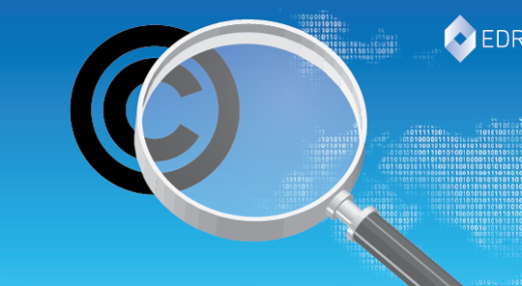Our work
EDRi is the biggest European network defending rights and freedoms online. We work to to challenge private and state actors who abuse their power to control or manipulate the public. We do so by advocating for robust and enforced laws, informing and mobilising people, promoting a healthy and accountable technology market, and building a movement of organisations and individuals committed to digital rights and freedoms in a connected world.
Filter resources
-

The Dutch continue to fight new mass surveillance law
On 4 November 2017, 20 000 households in the Netherlands received a letter from the Interior Security Service, Rijksveiligheidsdienst. The letter asked people to make an appointment to have a relay installed in their home. The letter stated that this installation was necessary because of the new Intelligence and Security Services Act, which gives the […]
Read more
-

Who defends the victims of mass surveillance? Tech companies could
Two clocks are ticking for US tech companies in the power centers of the modern world. In Washington, lawmakers are working to reform the Foreign Intelligence Surveillance Act (FISA) Section 702 before it expires on 31 December 2017. Section 702 is the main legal basis for US mass surveillance, including the programs and techniques that […]
Read more
-

Member in the Spotlight: Panoptykon Foundation
The Panoptykon Foundation is the only organisation in Poland that monitors state agencies and corporations that collect massive amounts of data, and has been doing so since 2009. The organisation carries out investigations, monitors the legislative process, makes legal interventions and inspire public debate.
Read more
-

School of Rock(ing) Copyright 2017: (Re-)united to #fixcopyright!
In September and October 2017, EDRi, Communia and Wikimedia co-organised a series of copyright-related workshops: School of Rock(ing) Copyright. The goal of the workshops was to engage local activists, researchers and associations interested in copyright to create new spaces of action at the national and European Union (EU) level.
Read more
-

New Estonian Presidency “compromise” creates copyright chaos
Following the launch of the controversial proposed Copyright Directive in September 2016, the European Parliament and the Member States (gathered in the Council of the European Union) are now developing their positions. The Council is working under its Estonian Presidency, which has produced a new “compromise” proposal. After the Estonian Presidency of the Council proposed […]
Read more
-

Portugal bans use of DRM that limits access to public domain works
With the tendency of becoming too accustomed to bad news on copyright, it is refreshing to hear that Portugal has recently passed a law that helps to strike a fairer balance between users and copyright holders on digital rights management (DRM). The law does not abolish legal protection for DRM altogether – unfortunately, that would […]
Read more
-

The European Parliament calls for protection of whistleblowers
On 24 October, the European Parliament adopted a resolution calling on the European Commission to propose legislation protecting whistleblowers in the European Union (EU). The institution made a clear statement recognising the essential role that whistleblowers play in our society, as well as the need to protect them. Whistleblowers fight for transparency, democracy and the […]
Read more
-

Surveillance laws fall far short of fundamental rights standards
On 23 October, the European Union Agency for Fundamental Rights (FRA) published the second volume of its study on surveillance and its impact on fundamental rights. This study comes following the request of the European Parliament (EP) for information on the consequences of surveillance for fundamental rights. The Agency notes that “the mere existence of […]
Read more
-

The privacy movement and dissent: Protest
This is the fourth blogpost of a series, originally published by EDRi member Bits of Freedom, that explains how the activists of a Berlin-based privacy movement operate, organise, and express dissent. The series is inspired by a thesis by Loes Derks van de Ven, which describes the privacy movement as she encountered it from 2013 […]
Read more
-

The European Commission struggles to find a position on encryption
On 18 October, the European Commission adopted some form of position on encryption, inexplicably embedded in its “anti-terrorism package”. Home affairs activity in relation to encryption is horizontal (covering all illegal activity) and not specifically related to terrorism. However, the Commission chose to include this topic in its anti-terrorism package. The decision to publish the […]
Read more
-

Leak: Three EU countries join forces for restrictions & copyright chaos
Leaked documents concerning the Copyright Directive show that France, Spain and Portugal have joined forces in the Council of the European Union to attack the cornerstones of internet freedom in Europe. The documents show that the three countries propose elevating fighting copyright violations to a special status – above combating terrorism, child abuse and serious […]
Read more
-

Join us at the 34C3 network assembly!
The 34th Chaos Communication Congress (34C3) will take place in Leipzig on 27-30 December 2017. This year, we will organise an assembly together with our friends at the Electronic Frontier Foundation (EFF), Privacy International, epicenter.works, Digitale Gesellschaft Switzerland, Forum InformatikerInnen für Frieden und gesellschaftliche Verantwortung (FIfF), Fitug, Gesellschaft für Freiheitsrechte (GFF), Hermes Center, Vrijschrift and […]
Read more
